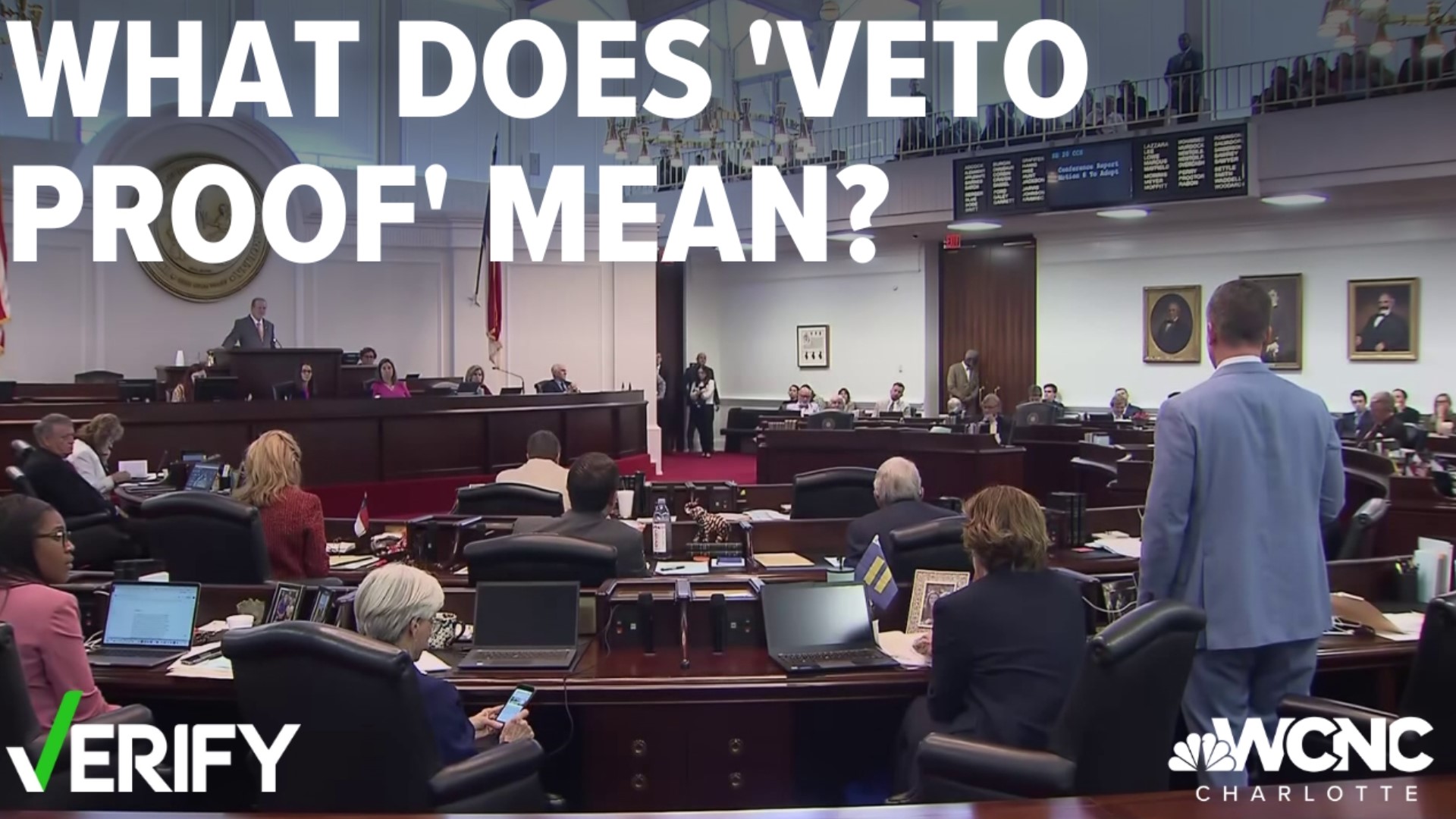CHARLOTTE, N.C. — In recent months, the terms "veto" and "veto-proof" have been in the forefront of discussions about legislative interactions between the North Carolina General Assembly and the Governor's office.
There are reasons behind this trend in political discourse, but it is important to clarify and contextualize these terms.
HOW DO VETOES WORK?
Veto powers are a way of balancing power between the executive branch and the legislative branch.
All state constitutions give governors the power to veto bills. Likewise, all states give legislatures the power to override a veto. Beyond this, the veto process and override process differs between states.
North Carolina was the last state to give the governor veto power, in 1996.
In North Carolina, the governor can veto a bill, sending it back to the General Assembly. But, unlike in many other states, the North Carolina governor does not have line item veto power, where the governor only vetoes items in an appropriations bill, rather than an entire bill.
The South Carolina governor does have line item veto power.
In North Carolina, once a bill is passed in the legislative branch, the governor can choose to sign it and the bill then becomes law. Or, the governor can veto the bill and return it to the legislature for reconsideration.
There is also a specific window of time for the governor to act once a bill is sent to the governor's desk. Once receives, if the governor does not act within 10 days, it automatically becomes law.
When the governor vetoes a bill and sends it back to the original chamber, the state House or the state Senate, the bill is up for reconsideration. This is where the "veto-proof" supermajority comes into play.
WHAT DOES "VETO-PROOF" MEAN?
In order to override a veto that has been sent back to the General Assembly, a three-fifths majority of the members of both houses must agree to pass the bill, which overrides the governor's veto, turning the bill into law.
When longtime Democratic Rep.Tricia Cotham switched parties in April, just months after being reelected as a Democrat for Dist. 112, this switch gave Republicans a "veto-proof" supermajority in the NC House.
Now with a "veto-proof" three-fifths supermajority in the state House and state Senate, the General Assembly has the power to override Gov. Cooper's vetoes.
Shortly after Rep. Cotham's switch, the General Assembly overrode Gov. Cooper's veto of the Senate bill to repeal the state's requirement to obtain a permit before buying a pistol.
The General Assembly is expected to do the same with the 12-week abortion ban that passed on Thursday, which Gov. Cooper promised to veto.
READ MORE: Newly passed abortion rules in NC headed to governor as Republicans hold 'vote-proof' majority
However, just because the General Assembly now has the ability to override the governor's vetoes, that does not mean all vetoes will be "veto-proof." Some legislators will cross the aisle, depending on the bill and their constituents. Generally speaking, the power of the supermajority is more utilized with bills that are more divisive and partisan.
Flashpoint is a weekly in-depth look at politics in Charlotte, North Carolina, South Carolina, and beyond with host Ben Thompson. Listen to the podcast weekly.
SUBSCRIBE: Apple Podcasts || Spotify || Stitcher || Google Podcasts
All of WCNC Charlotte's podcasts are free and available for both streaming and download. You can listen now on Android, iPhone, Amazon, and other internet-connected devices. Join us from North Carolina, South Carolina, or on the go anywhere.

